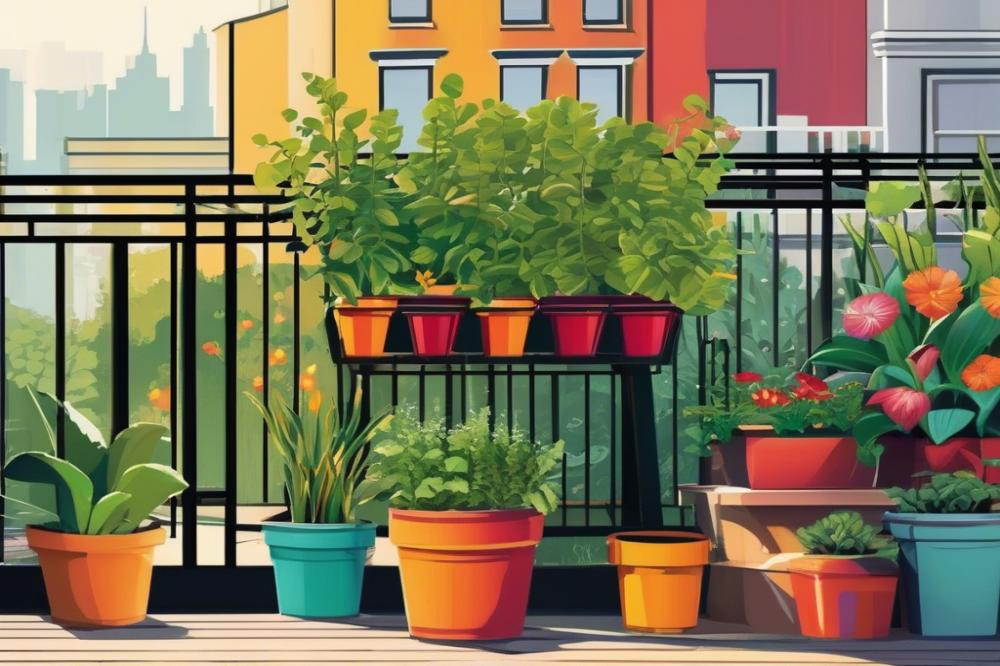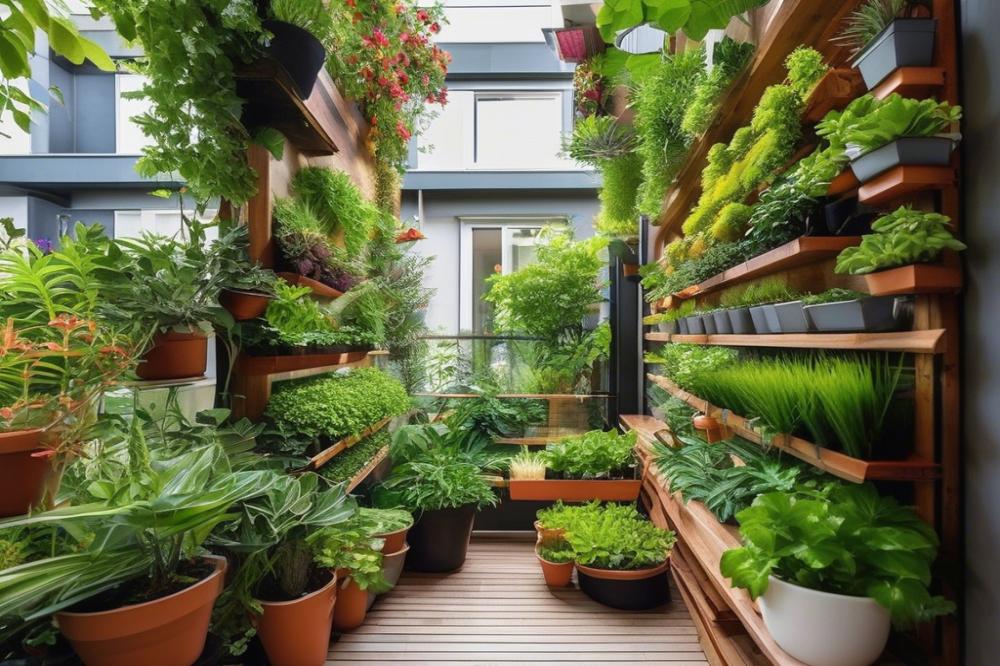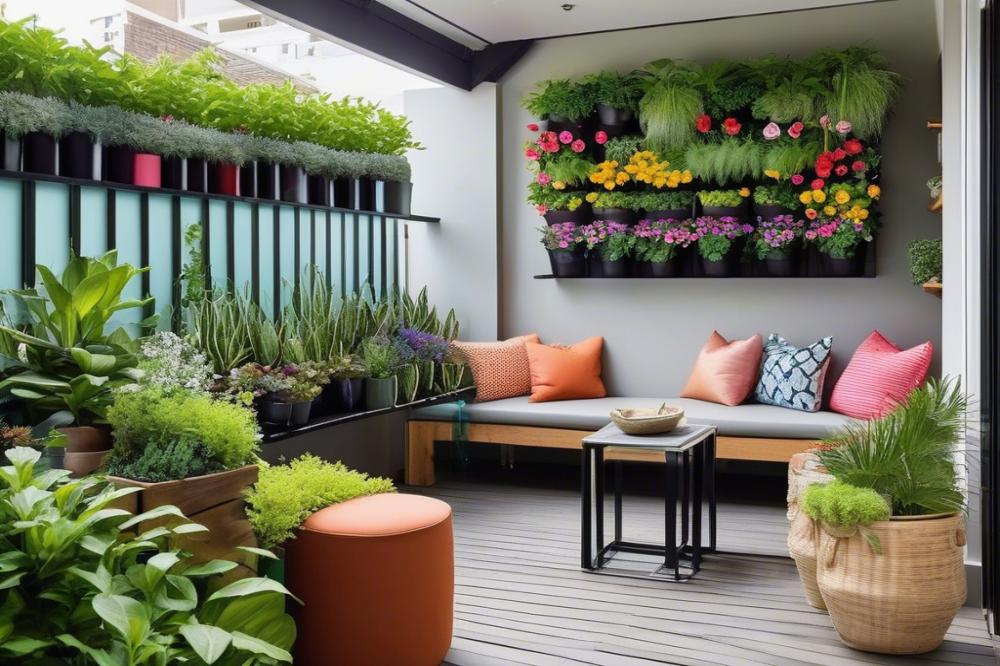small space composting: How to Manage Organic Waste
Living in smaller spaces has its challenges, but it also offers exciting opportunities for creativity and sustainability. small space composting is a practical solution for those who want to manage organic waste effectively. Even if you live in an apartment or a tiny house, you can still make compost right at home. It’s easier than many think, and the benefits are substantial.
In urban gardening, every bit of nutrient-rich compost can help your plants thrive. By recycling food waste, such as kitchen scraps, you reduce what ends up in landfills. This process not only enriches your soil but also supports a sustainable lifestyle. Compost boosts plant growth, keeping your garden healthy and productive. Finding the rightgardening-tips-for-maximizing-your-garden-area”> composting methods can transform how you view waste.
Consider implementing compost bins or worm composting systems. These setups allow for efficient breakdown of organic materials in limited space. Various composting tips can help you maximize your efforts. Use items like coffee grounds, vegetable peels, and eggshells to create a rich compost mixture. These contributions can make a significant difference.
Creating a composting system allows you to participate in eco-friendly practices. Reducing waste helps protect the environment, contributing to a larger movement toward sustainable living. Many people find that this connection to their waste makes them more mindful. When you manage organic waste effectively, you play a key role in reducing your carbon footprint. Embracing composting is not just about managing waste; it’s about fostering a healthier planet.
Whether you opt for indoor composting methods or a small outdoor bin, the choice is yours. Even in tight spaces, the chance to compost is accessible. With dedication, anyone can reap the rewards of enriching their garden while making a positive impact on the environment. It’s time to take a step toward better organic waste management and embrace small space composting!
Understanding Small Space Composting
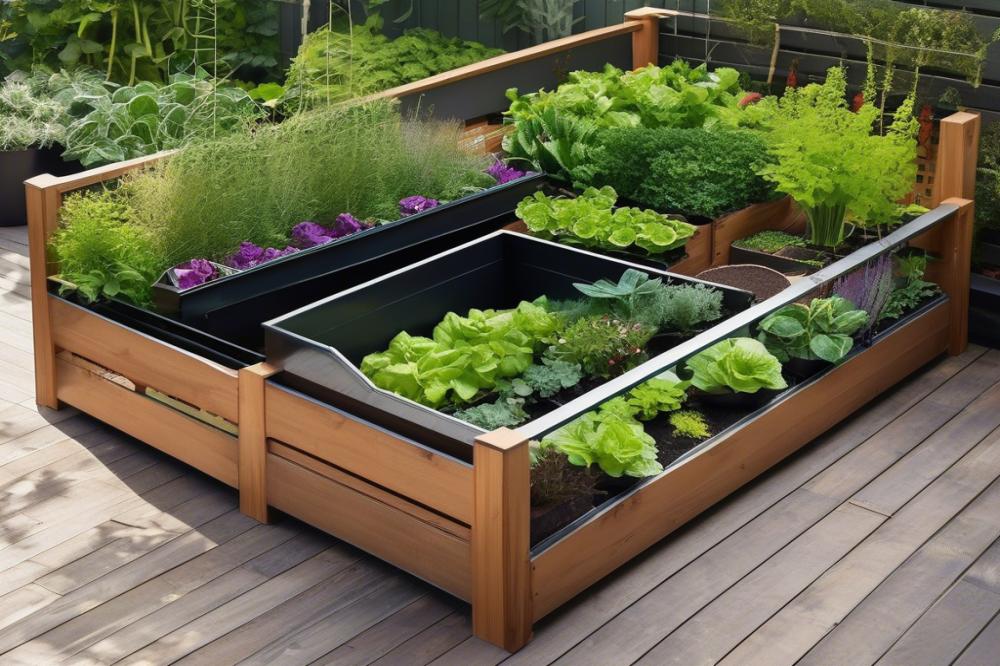

Small space composting means finding ways to recycle food waste in compact living areas. This practice is essential as it helps divert organic waste from landfills. Every year, tons of kitchen scraps go to waste when they could enrich our soil. For urban dwellers, this method of composting becomes even more significant. It connects people to sustainable living while improving the environment.
Managing compost in limited areas presents challenges. Many may think there’s no room for compost bins or piles in their apartments. Also, the fear of odors or pests can stop people from trying different composting methods. Indoor composting may seem messy, but it doesn’t have to be. Finding the right approach, such as worm composting, can change everything.
Urban gardening often benefits greatly from these eco-friendly practices. Composting enriches the soil, providing nutrients that plants thrive on. When you recycle food waste, it becomes a powerhouse of fertility. Even if the space is small, your garden can flourish with homemade compost. Plus, cultivating your own compost can give you a sense of accomplishment.
Using simple composting tips can help make the process easier. Start by collecting kitchen scraps like vegetable peels or coffee grounds. Also, consider space-saving compost bins that fit in your kitchen or balcony. The rewards extend beyond just gardening. Your efforts contribute to a cleaner environment and promote healthier living.
Composting Methods for Small Spaces
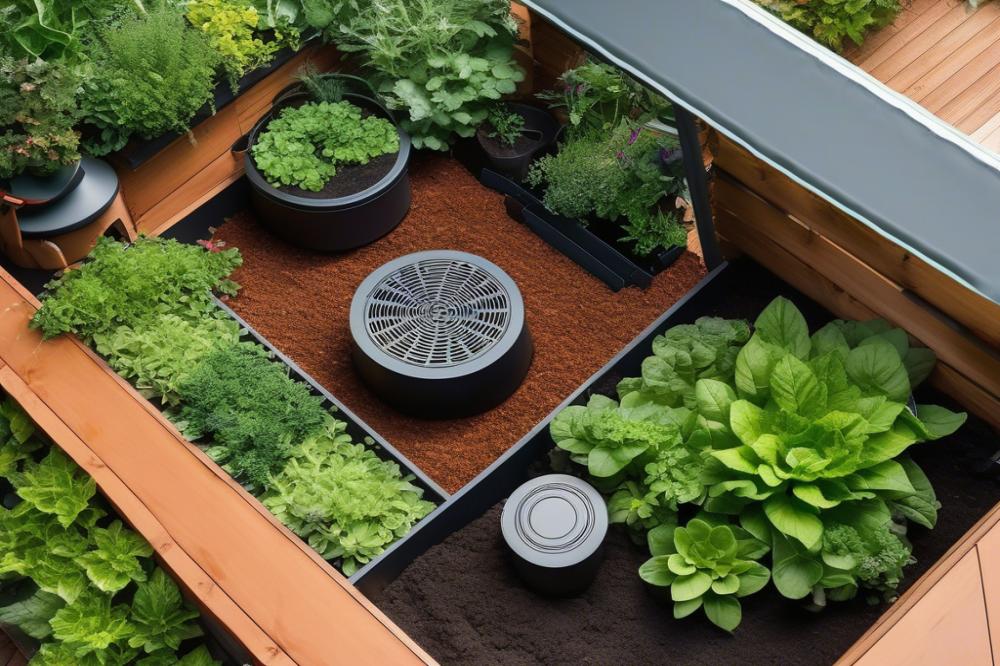

Managing organic waste in tiny areas presents a challenge, but several composting methods make it feasible. Each approach brings its own benefits, catering to different lifestyles and needs.
Traditional Composting with Compost Bins
Compost bins are the most common option for small space composting. These units can fit neatly in a balcony or yard. They transform kitchen scraps and yard waste into rich compost over time. It’s essential to balance greens and browns for effective results. Aeration is also crucial; turning the pile can speed up the decomposition process. Many models come with features that simplify maintaining the right conditions. Accessibility is another advantage, making it easy to add materials.
Bokashi Composting as a Quick Method
This method is quite unique. Bokashi composting uses a fermentation process rather than decomposition. You can even compost meat and dairy, which are usually difficult to handle. The system involves mixing kitchen scraps with Bokashi bran, creating an anaerobic environment. This sealed bucket allows for rapid recycling of food waste. After about two weeks, you can bury the mixture in soil to finish composting. It’s fast and effective for apartment dwellers.
Worm Composting (Vermicomposting) and Its Advantages
Worm composting is another fantastic option for urban gardening enthusiasts. Red wigglers thrive in small bins filled with kitchen scraps. These worms transform organic waste into nutrient-rich vermicompost. This method not only saves space but also produces a powerful fertilizer. Worm composting takes minimal effort, making it ideal for busy people. You can store the worm bin under the sink or in a closet. Plus, it’s a great conversation starter!
Indoor Composting Techniques for Apartments
When outdoor space is limited, indoor composting techniques can be lifesavers. You can use compact compost bins designed specially for apartments. These bins control odors and look stylish in your kitchen. In addition, some systems are even odor-free, allowing for convenience. Another method is using coffee grounds and eggshells in potted plants. This practice not only nourishes plants but also reduces kitchen waste. Additionally, exploring options like compost tumbler bins may fit into your lifestyle, offering convenience and efficiency.
Choosing the Right Compost Bin
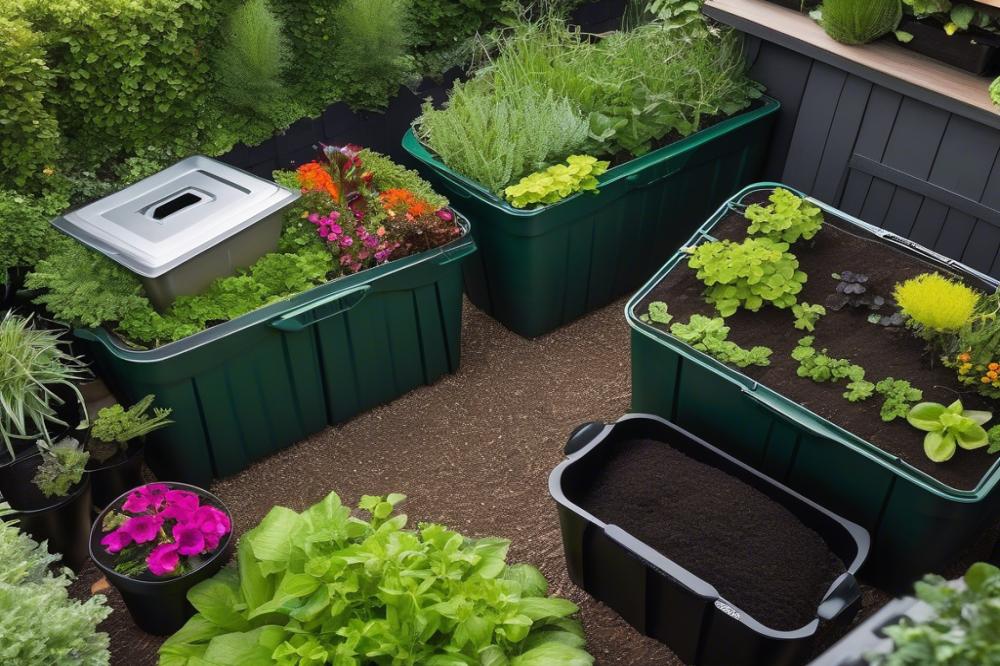

When selecting compost bins for small space composting, several factors come into play. First, consider the amount of kitchen scraps you typically produce each week. This will help you choose a bin that suits your needs. Next, think about the location. Will you be composting indoors or outdoors? Your choice may depend on available space as well as your lifestyle.
Factors to Consider When Selecting Compost Bins
Durability is another key factor. Different materials, such as plastic or wood, may have different lifespans. Additionally, consider whether your bin allows for proper ventilation. Oxygen is essential for effective composting. If you plan on using the bin in an urban setting, a compact design can be immensely beneficial.
Comparison of Different Types of Compost Bins
There are various composting methods to choose from. Tumbler composters are popular for their ease of use. These bins allow you to mix the contents without digging through layers. They can break down organic waste faster than other methods. However, they might require a larger footprint than you expect.
Stackable bins are another great option for urban gardening. They utilize vertical space efficiently and can expand as your composting needs grow. You can manage different stages of composting within these bins. Worm bins offer yet another solution through worm composting. Red worms break down kitchen scraps quickly, producing nutrient-rich fertilizer while taking up very little space.
Tips for Maximizing Efficiency in Small Compost Bins
Maximizing efficiency in smaller compost bins involves careful management. Start by chopping kitchen scraps into smaller pieces; this speeds up decomposition. Layer materials, alternating between green waste and brown waste. This balance keeps the bin from becoming too wet or too dry. Always keep your bin aerated by turning it occasionally or adding a few holes if the design allows for it.
Monitor the temperature inside the compost. A warm environment can accelerate the breakdown process. Another key aspect is knowing when to add new materials. Too much waste too quickly can slow things down. Lastly, apply eco-friendly practices by recycling food waste regularly to maintain efficiency and promote sustainable living.
Managing Kitchen Scraps and Food Waste
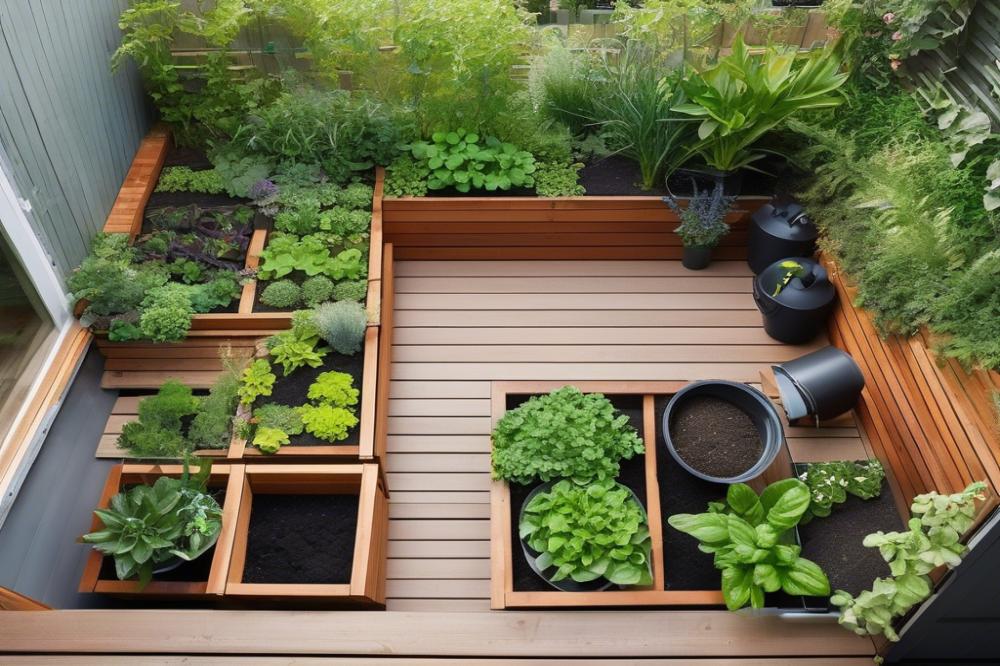

What Kitchen Scraps Can Be Composted
Many kitchen scraps are perfect for composting. Fruit and vegetable peels, for example, break down quickly. Coffee grounds and eggshells are also great options. Instead of tossing these items in the trash, consider putting them in your compost bin. Remember, not all food waste can go into compost. Avoid adding meat, dairy, or oily foods, as they can create odors and attract pests. Following composting methods designed for small spaces can make a big difference.
Strategies for Recycling Food Waste in Small Spaces
Finding effective strategies can simplify recycling food waste. Using a worm composting system is ideal for indoor spaces. Worms consume kitchen scraps, turning them into rich compost. Another method involves bokashi fermentation, which allows you to compost in an enclosed container. This approach reduces odors and speeds up the breakdown process. It works well if you have limited room. Keeping a small container for food scraps on your countertop is also useful. It makes recycling food waste easier and more accessible.
Tips on Reducing Waste Before Composting
Reducing food waste at the source can lessen the amount needing composting. Plan meals in advance to use up all your perishables. Store food properly to extend its shelf life. Regularly check your fridge for items that might spoil. Cutting a meal in half can save leftovers for another day. Additionally, consider creative recipes that use less common ingredients. Transform vegetable scraps into broth. This can be a great way to utilize every part of your food. Practicing these eco-friendly habits goes a long way in sustainable living. Each little effort counts towards a cleaner environment.
Essential Composting Tips for Small Space Gardeners
Using a compost bin can transform your kitchen scraps into valuable plant food. Select a bin that fits your available space. Consider options like tumblers or stackable bins. These methods work well in apartments or small yards. Collect organic waste daily. This keeps your compost healthy. After all, households generate significant amounts of organic waste. You can reduce your trash while benefiting your garden.
Maintaining an efficient compost system involves regular monitoring. Look for a balance between green materials, such as vegetable peels, and brown materials, like dried leaves. Successful composting requires the right ratio. Adjust materials as needed. It’s also crucial to turn or aerate the compost. This process speeds up decomposition and prevents odors. Frequent turning allows air to circulate. Ultimately, this encourages the growth of beneficial bacteria.
Pests can be annoying, but managing them isn’t complicated. Many small space composters face issues with fruit flies or rodents. To discourage these pests, always cover fresh kitchen scraps. Layering your compost with browns creates barriers. Additionally, keeping your bin closed can help keep unwanted visitors away. In many cases, composting can reduce problems if done properly.
Moisture and Aeration
Finding the right moisture level is key. Compost material should feel like a damp sponge. Too much water can lead to foul smells. If your compost is soggy, add more browns to absorb excess moisture. On the other hand, if it’s too dry, sprinkle some water and mix in fresh scraps.
Aeration is another vital aspect. Oxygen supports important microbial life that breaks down the organic material. Without air, your compost can become anaerobic, producing unpleasant odors. Make it a habit to turn your compost every week or so. This simple action fosters a healthy environment. Urban gardeners often overlook this step but should not underestimate its impact.
Incorporating worm composting could be an option for those with limited outdoor space. Worms can efficiently recycle food waste and enrich the compost. Setting up an indoor composting system allows you to manage waste directly in your kitchen. This eco-friendly practice takes up minimal room while providing rich fertilizer.
Final Thoughts on Sustainable Waste Management
Composting in limited spaces offers remarkable benefits for the environment and your gardening endeavors. It transforms kitchen scraps and yard waste into nutrient-rich soil, reducing landfill use and promoting healthier plants. Additionally, it minimizes greenhouse gas emissions, which is crucial for urban areas struggling with pollution. A simple process not only provides a practical solution to organic waste but also fosters a connection with nature.
Considering these advantages, you might feel inspired to take on composting practices yourself. Start with a compost bin suited for your space. Even a small container can make a significant difference. Explore different composting methods tailored to your needs, whether it’s vermicomposting with worms or using a bokashi system for anaerobic decomposition. The key is to start small and gradually expand your efforts as you become more comfortable.
Integrating this practice into your gardening routine is both rewarding and impactful. Small actions can contribute to a larger movement towards sustainability. Why not join others in this journey? By adopting composting, you enrich not only your soil but also your community’s ecological footprint. Embrace this opportunity, and watch how your small space can flourish with life and sustainability.

